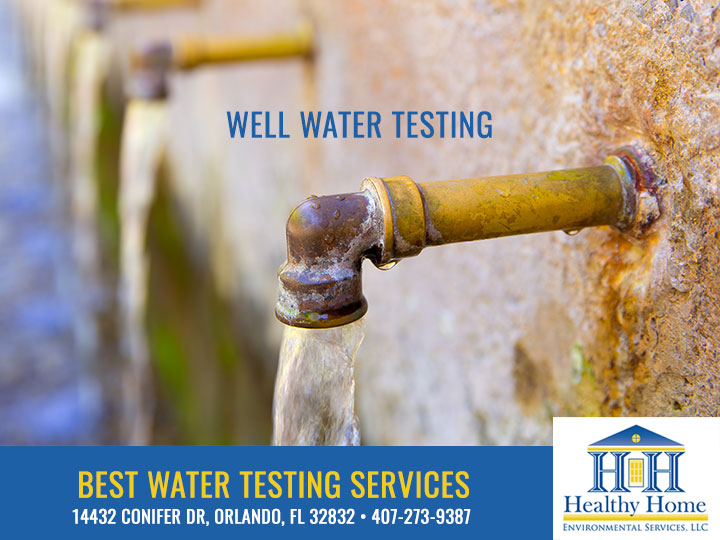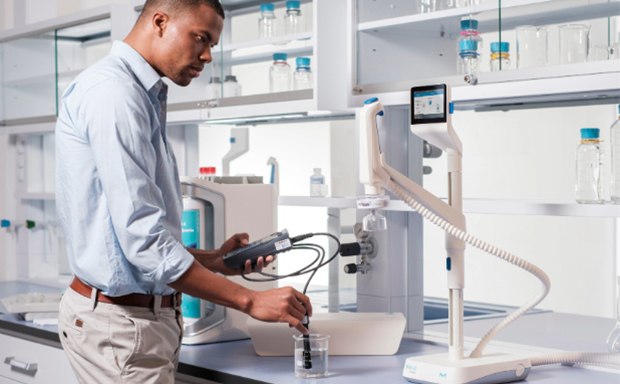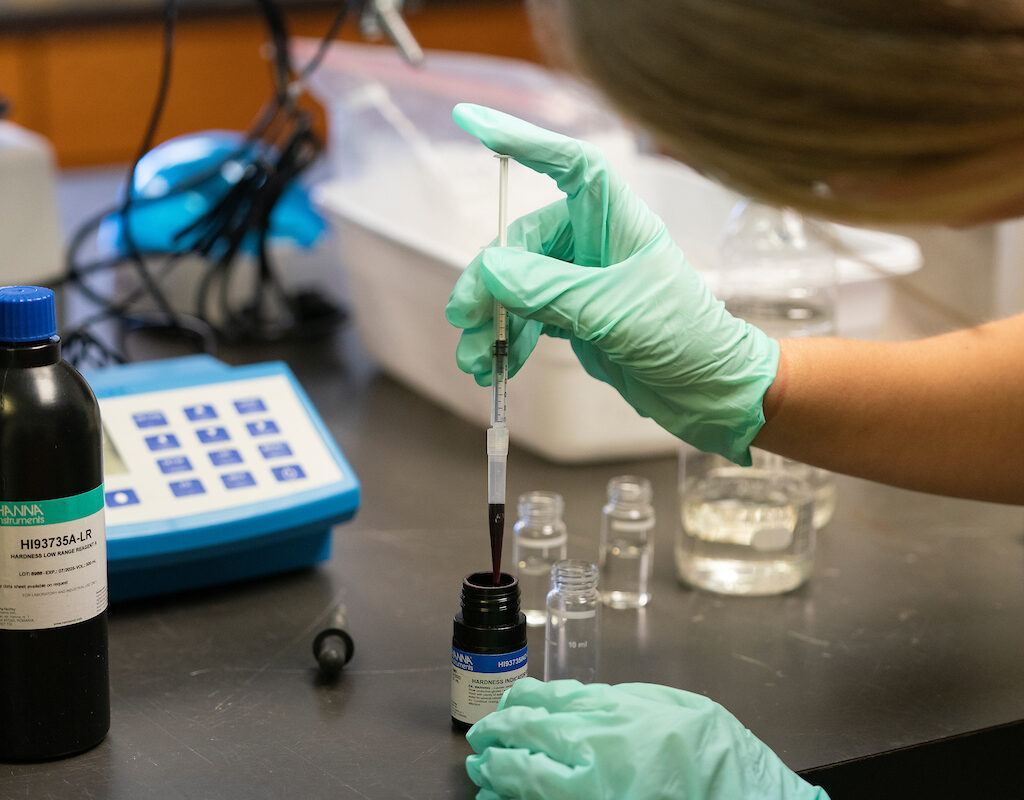Comprehensive Water Testing Services Orlando for Your Home's Needs
Comprehensive Water Testing Services Orlando for Your Home's Needs
Blog Article
Learn How Water Testing Can Spot Impurities and Protect Your Household's Health
Recognizing the relevance of water screening is important for securing your household's health, as our water supply can harbor undetected dangers. By discovering the auto mechanics of water screening, one can discover the invisible dangers lurking in apparently pristine water sources.
Importance of Water Testing
Acknowledging the vital function water plays in sustaining life, the value of water testing can not be overstated. Water is a basic source, vital for drinking, cooking, cleanliness, and various industrial procedures. Its top quality directly affects public health and wellness and health. Making sure that water is cost-free from damaging substances is vital for maintaining healthy neighborhoods and ecological communities.
Water testing offers as a positive action to recognize prospective risks that may jeopardize water quality. With systematic evaluation, it assists identify physical, chemical, and biological specifications that can pose risks to human health and wellness. Normal testing permits the very early discovery of issues, promoting timely interventions to avoid widespread contamination and connected wellness problems.
Additionally, water testing sustains regulatory conformity, ensuring that water service providers satisfy recognized security requirements and guidelines established by governmental authorities. It promotes openness and responsibility, building public rely on the water system system. Testing supplies beneficial information that informs water monitoring approaches, enabling lasting use and conservation of this precious source.
Fundamentally, water screening is an important device that safeguards public wellness, makes sure governing adherence, and promotes the sustainable administration of water sources. Its value in securing both neighborhoods and people can not be taken too lightly.
Usual Water Impurities
Among the various components that can jeopardize water high quality, usual water impurities consist of a range of physical, chemical, and biological substances that position considerable risks to human wellness and the setting. Physical impurities typically involve debris or natural materials suspended in water, which can influence clarity and taste.
Biological impurities, largely germs, viruses, and protozoa, develop from animal and human waste going into water systems. Microorganisms such as E. coli, Giardia, and Cryptosporidium are notorious for causing gastrointestinal health problems and can be particularly hazardous to children, the senior, and those with compromised body immune systems. Nitrates and nitrites, typically coming from plant foods, present an additional health threat, particularly to babies, possibly causing problems like methemoglobinemia or "blue baby syndrome."
In addition, emerging pollutants, including drugs and individual care products, have elevated problems because of their perseverance and unknown long-term impacts. Comprehending these contaminants is essential for applying efficient water therapy approaches and ensuring risk-free drinking water.
Exactly How Water Screening Works
Comprehending the range of contaminants in water emphasizes the importance of reliable screening approaches to safeguard public health. Water screening is an organized process developed to recognize and measure various impurities that can present risks to human health.
As soon as examples are gathered, they go through research laboratory analysis using various strategies. Chemical testing often includes spectrometry or chromatography, both of which can identify and measure specific chemical compounds. For microbiological screening, methods such as membrane layer purification or enzyme substrate examinations are used to find pathogenic bacteria. Furthermore, physical features like ph, shade, and turbidity are examined to supply insight right into the overall quality of the water.
The specific methodologies employed in water testing depend upon the certain contaminants of issue and the water's meant use. By consistently applying these rigorous testing protocols, click this link scientists and public health and wellness officials can guarantee the safety and high quality of water, thus protecting areas from prospective health and wellness risks.
Picking the Right Test
Just how does one figure out the most proper water examination for their needs? Picking the best test involves recognizing both the certain qualities of the water resource and the possible pollutants that might be present. The initial step is evaluating the water source-- be it municipal, well, or surface area water-- as each has unique dangers. Municipal water could call for screening for disinfectant results, while well water might need screening for nitrates, microorganisms, and hefty metals.
Following, take into consideration current events and environmental factors. Close-by agricultural tasks might demand testing for herbicides and chemicals, whereas commercial zones might call for look for chemical contaminants. In addition, any type of adjustments in water odor, taste, or appearance should trigger certain screening for common pollutants like lead, chlorine, or biological virus.
Professional water testing services provide detailed sets that target a variety of potential contaminants. These kits typically line up with criteria set by the Epa (EPA) or neighborhood wellness divisions. For a more customized technique, talking to a water top quality professional can supply insights right into which details examinations are needed based on local problems and individual wellness requirements, guaranteeing the protection of your home's well-being.

Keeping Water Security

In enhancement to screening, appropriate upkeep of water supply plays a vital function. This includes servicing and checking pipes systems, storage space tanks, and septic tanks to stop leaks or backflow that might present impurities - Well water testing services. Employing water purification systems developed to address certain regional issues can better safeguard versus pollutants, providing an extra layer of defense
Public understanding and education are just as important in keeping water safety and security. Neighborhoods should be notified regarding possible risks related company website to neighborhood water sources and the needed actions to reduce them. Encouraging public involvement in water safety campaigns cultivates a cumulative duty that enhances total performance.
Ultimately, a thorough approach that incorporates regular screening, system maintenance, and area involvement is vital in guarding water high quality. By doing so, family members can be assured of clean and safe water, safeguarding their wellness and wellness.

Conclusion
Normal water screening is essential for determining pollutants such as bacteria, heavy steels, and chemicals that position health and wellness dangers. By analyzing water samples, unseen threats can be spotted, making certain the provision of risk-free alcohol consumption water.
Comprehending the relevance of water testing is important for guarding your family's wellness, as our water supply can harbor hidden risks.Water screening offers as a positive step to identify possible hazards that may compromise water high quality.Moreover, water testing sustains regulatory compliance, guaranteeing that water providers meet well established safety and security standards and guidelines set by governmental authorities. Community water might require screening for disinfectant by-products, while well water might require screening for nitrates, germs, and heavy steels.
Regular water screening is an important element in keeping the top quality of water sources, allowing timely treatments before pollutants get to hazardous levels.
Report this page